France: Strasbourg
France
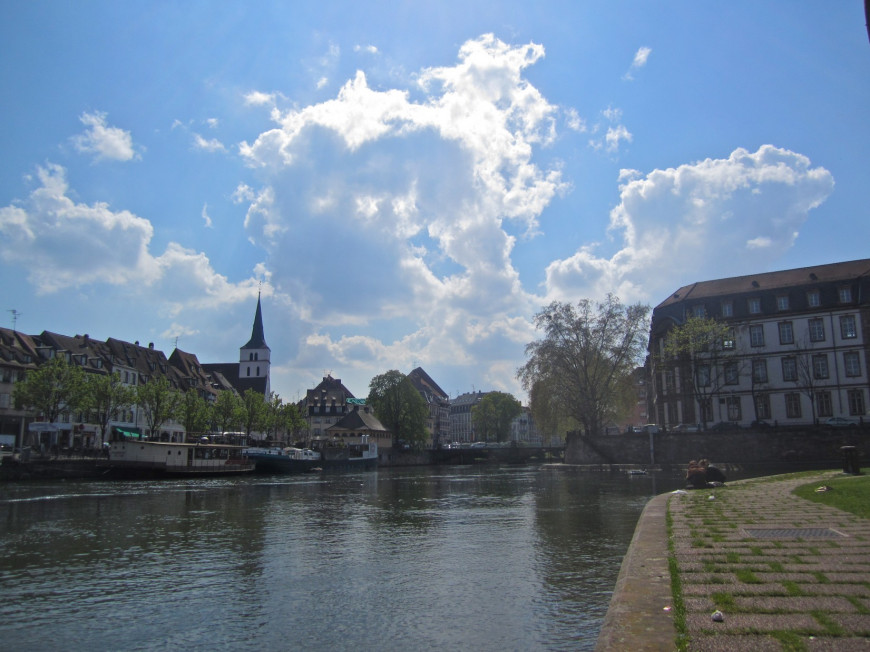
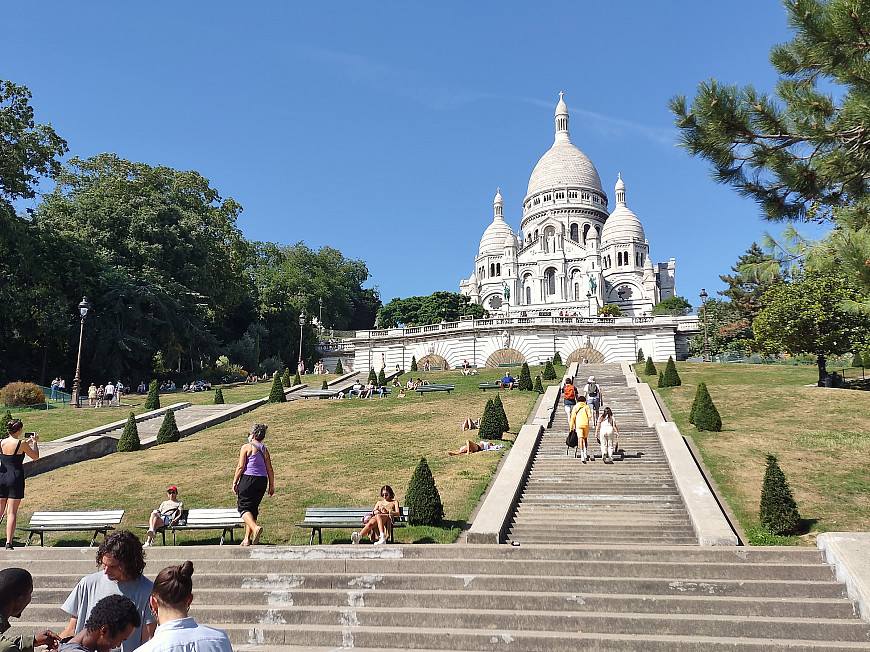
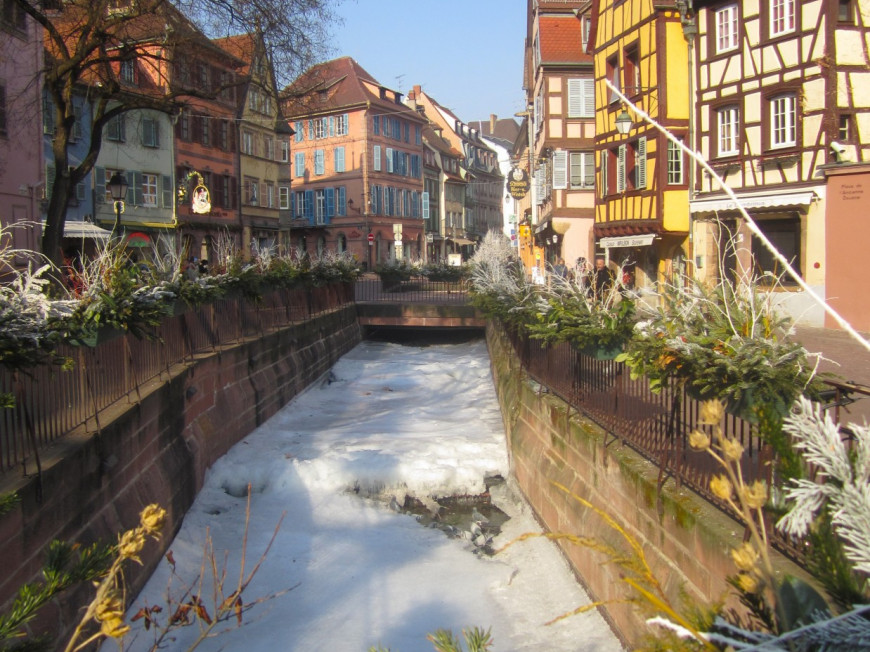
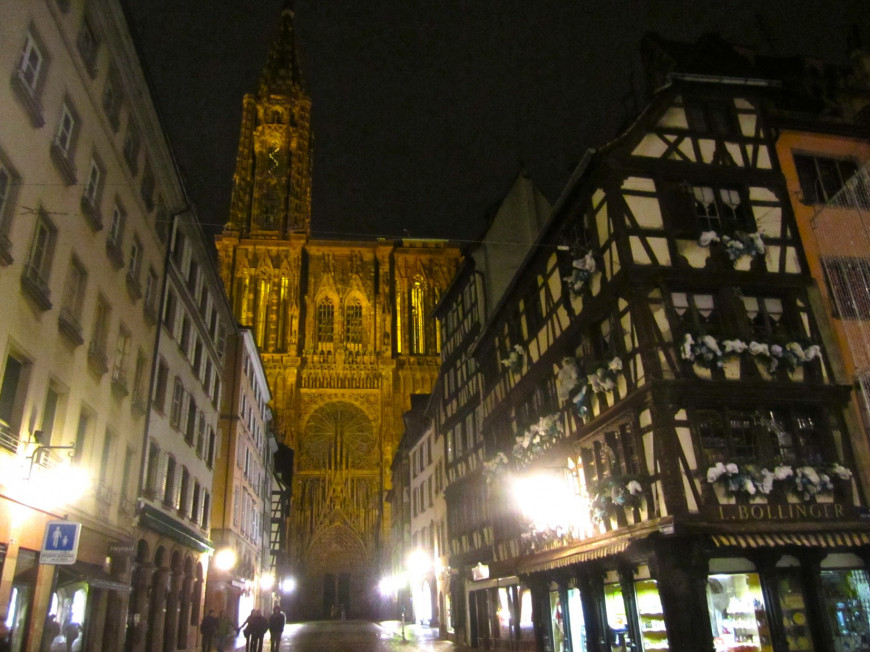


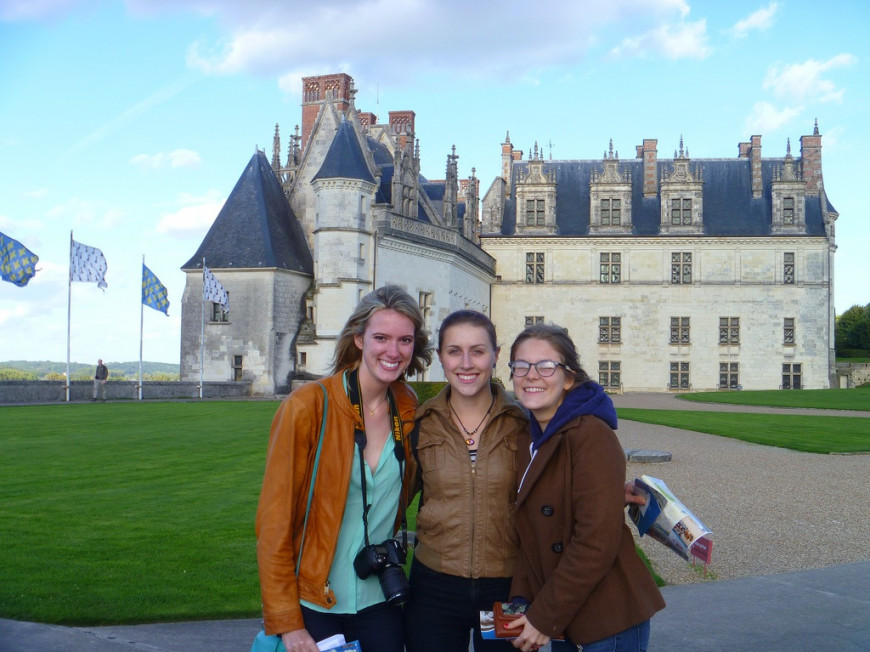








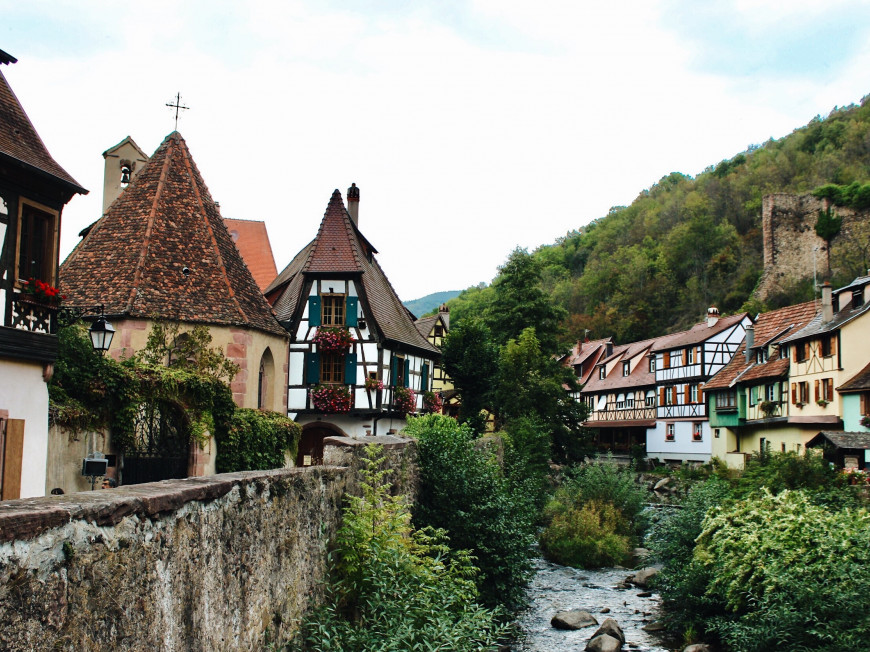
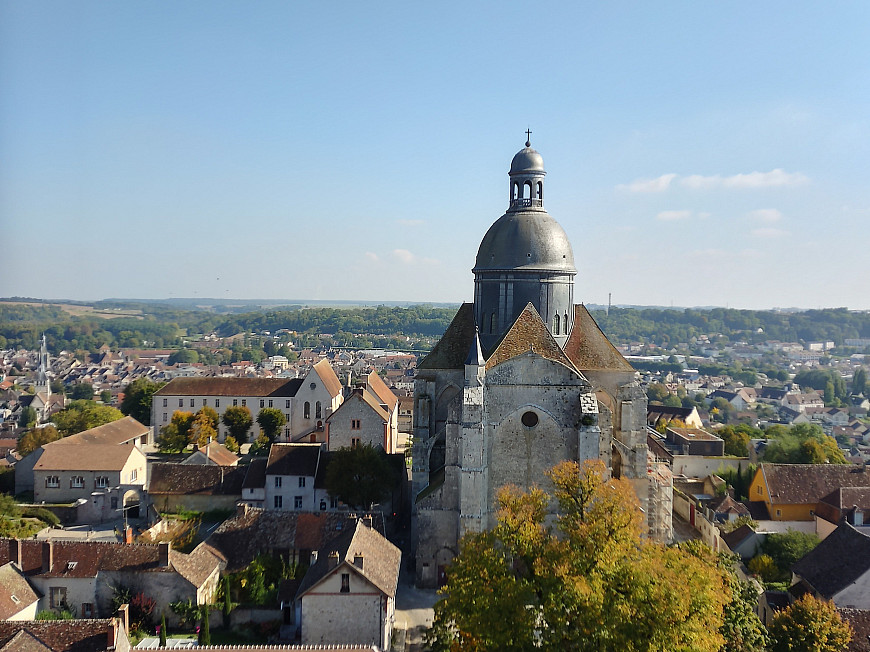
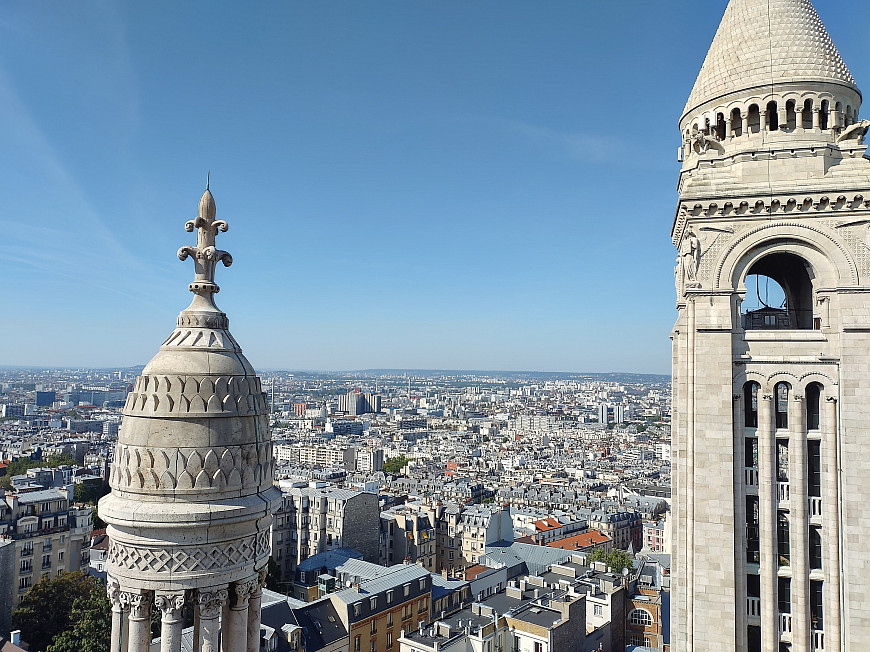

| Program Snapshot | |
| Semester: | Fall, Spring, or Full Year |
| Offered: | Annually |
| Estimated Dates: | Fall: early September to late December, Spring: Mid-January to early June |
| Program Focus: | Language Intensive |
|
Prerequisites: |
FREN 202 with a 3.0 GPA or better and 3.0 GPA in language. Students must satisfy the Words and Numbers CORE requirement before participating in an overseas program. |
| Housing: | Host Families |
|
Campus Contacts: |
Isabelle DeMarte
Molly Robinson Associate Professor of French pbrand@lclark.edu, 503-768-7429 |
Program Design
The Lewis & Clark France Program in Strasbourg focuses on the language, history and contemporary culture of France. Courses are taken with faculty in the Institut International d’Études Françaises (IIEF) at the Université de Strasbourg, and are also taught by other faculty from the Université de Strasbourg. Students with advanced French have the option to enroll directly in courses at the Université de Strasbourg in most departments. All students do an internship of their own design taking advantage of the wide variety of activities and organizations in Strasbourg. Students have the support and supervision from LCK staff as they create and carry out this semester long project.
Since its founding by the Roman Empire, Strasbourg has served as an international gateway and birthplace of great ideas in throughout every era. Its rich history as the much-disputed prize of many nations has given the city a unique international flavor. Strasbourg houses the Council of Europe and the European Parliament, as well as the European Court of Human Rights. In addition to its role as the political “Capital of Europe,” Strasbourg is an important economic center. Its historic role as the “crossroads of Europe” continues as the second largest port on the Rhine River and the midpoint between France, Germany, Switzerland, Belgium, and Luxembourg.
The city overflows with cultural activity from the homespun to the avant-garde. Internet-connected cafés are tucked onto streets that look as they might have two hundred years ago. A modern tramway system takes locals from Renaissance and Medieval-period areas of town to metropolitan commercial districts, and even within minutes to Germany. Culturally, the city boasts a national opera with ballet, a national theater, museums, gardens, and one of the largest and most beautiful cathedrals of Europe. Strasbourg continues to have an active modern artistic community, keeping cultural growth in the city alive. More cultural experiences than anyone could possibly attend are available, all within a short walking distance.
Onsite Staff: The Resident Director of LCK is Molly Tennis. Raised in Seattle, Washington, Molly attended Williams College before serving in the Peace Corps in Chad, Africa. She obtained her master’s degree from the University of Washington in Comparative Literature and acted as the Resident Director of the International Residence at the Northwest School in Seattle, Washington. Before moving to Abu Dhabi with her husband and four sons she worked in Public Relations and Educational Outreach for the Port of Seattle. Overseas, she worked extensively schools as a teacher, personal trainer, and volunteer coordinator for various inter-cultural programs. She enjoys biking, hiking and travel and provides leadership in a number of volunteer organizations that support cross-cultural understanding and service.
Academics
Requirements Fulfilled:
General Education - This program fulfills the Global Perspectives general education requirement for students who successfully complete 8 or more semester credits.
Major/Minor Requirements - This program fulfills the overseas study requirement for the French Studies major, the World Languages overseas study requirement with French as the primary language, and applies up to 12 credits toward the French Studies minor.
Credits:
Credit earned varies based on courses completed. Students may earn up to 19 credits. Overloads are not permitted.
Curriculum:
French Language: Students are given a French language placement examination to determine course curriculum options, which vary according to students’ language levels. Students also do an internship and meet regularly with a program coordinator to assist with identifying, seeking, and setting up a weekly Integrated Cultural Research Project (ICRP). As a part of the ICRP, students keep a journal about their activities and meet weekly with the ICRP coordinator to discuss progress, problem-solve and develop the thesis for a final written production based on students’ ICRP activities. Additionally, students may choose from a wide variety of courses offered by many of the regular departments or Facultés (Departments/Schools) within the University of Strasbourg, with the exception of the Sciences where admission is limited.
Students may earn credit in three ways:
- LCK courses: Each term LCK hires French professors to teach a small number of courses that are available only to LCK students.
- IIEF university courses: University courses open only to international students. These courses are taught in the IIEF: Institut International d’Etudes Françaises, a part of the University of Strasbourg. Most students will have at least some coursework at the IIEF. All classes are taught in French, with a focus on French language and civilization. Courses range in level from beginner to advanced, designed for mastering French language acquisition in the areas of oral, written expression and comprehension. Subject courses in French civilization, literature, politics, and culture are taught at advanced levels.
- University of Strasbourg Faculté courses: University courses open to French and international students: LCK students can take classes at a number of departments and institutes of the University of Strasbourg, depending upon their level of French skills, and class size availability. The Institut d’Etudes Politiques, a separate selective part of the UDS system, is a Faculté with popular course offerings.
LCK Courses in Strasbourg
Intercultural Research Project
All students complete an internship class as part of their first semester in Strasbourg. The internship opportunities are varied and reflect students’ interests. Past internships have included positions at bakeries and floral shops, refuge organisations, an LGBTQ centre, Catholic charities, art galeries, wine shops, local high schools, and even the European Parliament. This course, under the direction of a French university faculty member, consists of completing 40 hours at the internship site, keeping a journal noting reflections, a weekly meeting with the professor, and a final research paper with an abstract.
Intensive French Culture Class (Spring Semester)
This is a seminar focusing French culture, history, and current events. It is taught by a University of Strasbourg Professor and includes cultural events (theater, museum outings, cultural tours).
The European Union (Fall Semester)
This course primarily examines the development of the European Union and its institutions from its inception in 1949 to its present form. In addition, a number of international organizations located in Strasbourg will be studied. Three field trips are included to the EU Parliament, the Council of Europe, and the European Court of Human Rights. This course is taught in English.
Intensive Language Course (Fall Semester – depending on language level)
This course begins during the first week of September and is designed to prepare beginning French level students for course work and pedagogical expectations in France.
University Courses for Foreign Students at the IIEF
Most courses at the IIEF are one credit unless otherwise noted, except for the French language class, which is worth six credits.
Institutions Politiques
Study of the major developments in the French political landscape since the Revolution. Second semester deals exclusively with the Fifth Republic.
Histoire de l’Art
Fall semester: Néo-classicisme et romantisme. Studies of the works of David, Gericault, Gros, Ferie, Ingres, and Delacroix. Spring semester: Réalisme et impressionnisme. Studies of the works of Corot, Courbet, Manet, Degas, Monet, Renoir, Sisley, Morisot, Cassatt, Pissarro, and Cezanne.
Phonétique
Theoretic approach to French phonetics. Study of relationship between written and spoken French. Bibliography: Carton, F.: Introduction à la phonétique du français.; Malmberg, B.: La Phonétique.; Martinet A. Eléments de linguistique générale.; Wioland, F.: Prononcer les mots du français. Des sons et des rythmes.
Institutions Européennes
Survey of the major European institutions with particular emphasis on those headquartered at Strasbourg—the Council of Europe and the Parliament of the European Union.
Littérature: “Initiation à la Littérature Française”
General history of French literature with analysis of extracts from major works. Bibliography: Ronsard, poésies; Racine, Andromaque; Voltaire, Le dictionnaire philosophique; Flaubert, Un coeur simple
French Language Course Block (up to 6 credits)
A wide range of courses designed specifically to improve students’ grasp of French are offered at the IIEF. Subjects range from written and oral expression and comprehension to translation and writing styles. Students are placed in language classes according to their French level. They may also receive a French diploma, signed by the University of Strasbourg President, which can certify their level and ability to take graduate classes in a French institution.
Other Courses commonly available at the IIEF:
- Civilisation Française
- Histoire du Film documentaire
- Littérature du XXème et techniques d’Écriture Littérature thématique
- Ecriture créative
- Histoire des Révolutions Françaises
- Traduction Anglais-Français
- Relations Internationales
University Courses at the IEP
The Institut d’Etudes Politiques (IEP), part of the French Grande Ecoles system, is a highly selective Political Science and Public Policy studies institute at the University of Strasbourg where students can attend a wide range of classes. Most IEP courses are 2 or 4 credits per semester. The IEP has its own competitive admissions process, but Lewis & Clark students can be admitted by recommendation from their French professor at Lewis & Clark College, or after a semester at the IIEF. Students are required to complete an online application with strict completion dates the semester before attendance. Students majoring in Political Science or International Affairs will especially be interested in taking courses at the IEP but students majoring in other disciplines may also find classes that will compliment their majors.
Excursions:
The program includes local and regional excursions through LCK. Students attend a 4-day educational and cultural excursion to Paris, including museum outings, theatre, and other cultural activities and guided tours; most meals are provided and students are hosted in a three-star hotel located in the heart of the city. In addition, students participate in two, day-long trips in Alsace or Lorraine which focus on regional history and culture. These include guided visits to museums, a concentration camp, the Alsace Moselle Memorial Museum, a large château, charming villages, and always include a fine-cuisine meal at a well-known regional restaurant.
Student Life
Housing: During their time in Strasbourg, students will reside with carefully chosen host families. Living with a host family gives students the chance to practice their language skills outside of the classroom, and allows students to experience daily life in a French household. Students eat dinner and breakfast every day with their host families. LCK provides students with a generous lunch stipend, which they can use at student cafeterias on campus or at local cafés.
Extracurricular Activities: Active student clubs introduce students to French peers who share extra-curricular interests in theater, pottery, hiking, singing, and more. Culture Cards, which allow students to purchase discounted and very inexpensive tickets to concerts, Opera, ballet, and theater performances, as well as discounted movie tickets are available upon request. LCK students also receive a university sports card, allowing them to choose from over 50 class offerings including dance, rock climbing, team sports, and horseback riding.
Travel: For students who wish to travel, Strasbourg is ideally located. Regular train service from the central station in Strasbourg keep London, Brussels, Zurich, and Paris all within a few hours’ distance. Inexpensive buses run regularly between Strasbourg and major European cities. Additionally, low-cost airlines serve regional airports and offer flights to destinations throughout Europe. International students from all over Europe and the world come to study in Strasbourg, making study in Strasbourg a rich, intercultural experience.
Cost
2024-2025 Fee Breakdown*
Total Fee (includes Tuition, Program Fee, and Health & Wellness Fee): $40,962
Tuition: $32,197
Program Fee: $8,728
Health & Wellness Fee: $37**
Included in the program fee are room/housing, board/meals, and administrative fees. Not included are airfare, passport and visa expenses, primary insurance coverage, photographs, books, immunizations, and incidentals.
*Fees are updated every February for the following academic year.
**The Health & Wellness Fee supports the operations of Wellness Services staff in delivering pre-program orientation services, as well as in providing health-related consultation regarding participant health needs. All students in the College of Arts and Sciences pay a mandatory fee of $37 per semester.
Stipend: Students will receive a stipend to cover the cost of meals and transportation costs not covered by the program fee.
Estimated Airfare (Round Trip PDX to FRA): $800-$1,500
Estimated Travel Document Fees: $300-400
Estimated Health Insurance Fee: $1,906
All students participating in overseas programs are automatically enrolled in iNext, a supplemental travel insurance program. The fee for iNext is covered in the program cost. However, students are also required to have comprehensive health insurance during their time abroad. All students participating in overseas programs, both abroad and domestic, are automatically enrolled in the College’s student health insurance program. Similar to a regular semester on-campus, students participating in overseas programs may waive enrollment in the student health insurance program if they have other comprehensive health insurance (e.g., through a parent, guardian or employer) that 1) provides coverage for them in the geographic region in which they will be studying and 2) includes mental health benefits. Click here for more information regarding health insurance & overseas programs.
Program Preparation
Application Process: Applications are due one year before the start of the program. The semester before the program, students are required to complete specific pre-departure tasks and attend an orientation session organized by the Overseas office. Students must also attend an orientation session presented by the French department, which is meant to inform students about French culture, customs, and the French university system.
For more information about the application process, click here.
Travel: Students usually fly into the Frankfurt airport (FRA), where they can take the Lufthansa bus to the city center bus station in Strasbourg (2.5 hours). If students arrive at the station within a predetermined window of time, the host family will pick them up from the station.
Visa: Students will be required to apply for a visa in order to participate in this program. All students are required to present their visa documents in person at a VAC (Visa Application Center) in the US. The closest VAC centers are in Seattle and San Francisco. Visa applicants living in the United States can set up their appointment at one of the nine VFS Global centers regardless of their location. Click here to view all VFS locations. More information will be provided upon admission to the program. Please do not start the long-stay visa process until you have been notified to do so.
Country-Specific Health Information: Click here to view specific health information for people traveling to France.
State Department Country Information: Click here to visit the State Department’s France page.
France, Strasbourg
Overseas and Off-Campus Programs is located in room 206 of Albany Quadrangle on the Undergraduate Campus.
MSC: 11
email overseas@lclark.edu
voice 503-768-7295
fax 503-768-7300
Director Blythe Knott
Overseas and Off-Campus Programs
Lewis & Clark
615 S. Palatine Hill Road
Portland OR 97219